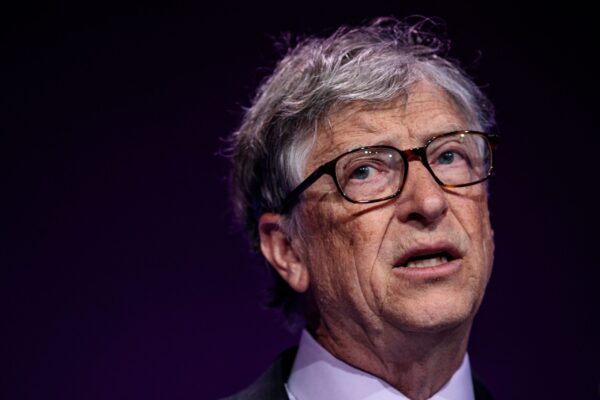Bill Gates, founder of Microsoft, the computer software company, says artificial intelligence (AI) needs regulations to achieve its full potentials.
Gates spoke after attending a United States senate ‘AI Insight Forum’, held on Wednesday and was attended by over 20 tech titans.
Some of the attendees included Elon Musk, owner of X (formerly Twitter), Google’s Sundar Pichai, Mark Zuckerberg of Meta, and Sam Altman from OpenAI.
Gates raised concerns about AI risks and advocated for the government and private sector to work together to minimise them.
Advertisement
“The potential of AI is limitless — but we will only realize that potential if government, the private sector, and civil society work together to maximize the technology’s benefits and minimize its risks,” the co-chair of the Bill and Melinda Gates Foundation tweeted on Thursday.
Earlier in July, the tech billionaire highlighted the risks of AI on his blog but said they were manageable.
“This is not the first time a major innovation has introduced new threats that had to be controlled. We’ve done it before,” he had said.
Advertisement
“Whether it was the introduction of cars or the rise of personal computers and the Internet, people have managed through other transformative moments and, despite a lot of turbulence, come out better off in the end.
“Soon after the first automobiles were on the road, there was the first car crash. But we didn’t ban cars—we adopted speed limits, safety standards, licensing requirements, drunk-driving laws, and other rules of the road.”
Gates had also asked the government to build up expertise in artificial intelligence so they could make informed laws and regulations that respond to this new technology.
He urged private-sector AI companies to pursue their work safely and responsibly.
Advertisement
“That includes protecting people’s privacy, making sure their AI models reflect basic human values, minimizing bias, spreading the benefits to as many people as possible, and preventing the technology from being used by criminals or terrorists,” Gates had noted.
In May, Geoffrey Hinton, a scientist regarded as the godfather of AI, quit his job at Google over fears of growing dangers from innovations in the field.
Hinton described the situation as a nightmare and said he regretted his work.
Advertisement
Add a comment






